Urgent Alert: What is Acute Prostate Inflammation?
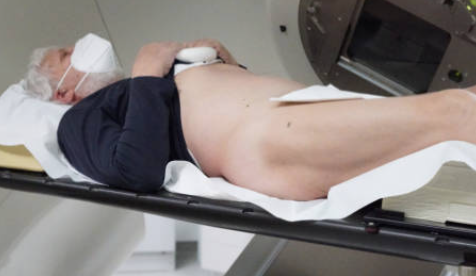
What is Acute Prostate Inflammation? A Sudden and Painful Problem
Imagine a sudden onset of burning pain when you pee, a fever, and a feeling like you always need to go to the bathroom, but when you do, nothing much comes out. That’s the alarming reality of acute prostate inflammation. Let’s explore everything you need to know about this uncomfortable condition.
What Exactly is the Prostate? Your Guide to This Vital Gland
First things first – where is this mysterious prostate gland? It’s a small, walnut-shaped gland situated just below a man’s bladder and in front of the rectum. Think of it as a key player in the male reproductive system – it produces a special fluid that forms a crucial part of semen.
The Prostate’s Important Job
Why does this prostate fluid matter? Here’s what your prostate does:
- Nourishment for Sperm: The fluid from your prostate provides essential nutrients to keep sperm healthy.
- Sperm’s Superhighway: This fluid acts as a transport system, helping sperm travel during ejaculation.
- Protection: The prostate fluid contains elements that help protect sperm from the acidic environment of a woman’s vagina.
Key Prostate Health Considerations
Understanding the prostate is crucial for men’s health. As you age, changes in the prostate are normal, and they can include:
- Benign Prostatic Hyperplasia (BPH): A non-cancerous enlargement of the prostate common in older men, often causing urinary symptoms.
- Prostatitis: Inflammation of the prostate, which can be acute (like we’re discussing) or chronic.
- Prostate Cancer: One of the most common cancers in men.
What is Acute Prostate Inflammation (Prostatitis)?
Acute prostate inflammation, also known as acute bacterial prostatitis, is a sudden and often severe bacterial infection of the prostate gland. This condition affects men of all ages and can lead to significant discomfort, including pain, urinary difficulties, and flu-like symptoms.
Understanding the Symptoms of Acute Prostatitis
If you are concerned about the possibility of acute prostate inflammation, it’s essential to be aware of its primary symptoms. This infection can manifest in various ways, so if you’re experiencing any of the following, it’s crucial to seek medical attention:
- Painful urination or a burning sensation while urinating
- Urgent and frequent need to urinate, especially at night
- Difficulty starting to urinate or emptying the bladder
- Lower abdominal, genital, or back pain
- Pain in the perineum (area between the scrotum and rectum)
- Fever, chills, or body aches
Seeking Diagnosis and Treatment: Don’t Delay, Act Today
Prostate problems can be embarrassing to discuss, but delaying treatment can be even worse. Self-diagnosis attempts or ignoring the bothersome symptoms of acute prostate inflammation can lead to serious complications. Here’s why early intervention is crucial:
- Fast Relief: The sooner you start treatment, the sooner you’ll find relief from painful symptoms.
- Preventing Complications: Untreated acute prostate inflammation can progress to potentially life-threatening problems like sepsis or a prostate abscess.
- Addressing the Root Cause: A doctor can determine the underlying cause of your inflammation and recommend the most effective treatment plan.
- Peace of Mind: Knowing what you’re dealing with and that you’re taking action can provide significant mental relief.
How to Find Help:
If you suspect acute prostate inflammation, here’s what to do:
- See Your Doctor: Schedule an appointment with your primary care physician or a urologist (a specialist in urinary tract and male reproductive health)
- Be Prepared: Keep track of your symptoms, including their severity and when they started.
- Don’t Be Shy: Your doctor has seen it all! Be candid about your concerns for the best possible diagnosis.
Who’s At Risk for Acute Prostate Inflammation?
While any man can develop acute prostate inflammation, certain factors significantly increase your vulnerability. Understanding these risks allows you to take preventative measures whenever possible.
-
Age: A Key Factor Men in their younger and middle-aged years are at higher risk for acute prostate inflammation. While the exact reasons aren’t fully understood, it’s crucial to be aware of this connection.
-
The UTI Connection If you’ve recently experienced a bladder infection or a urinary tract infection (UTI), your risk is elevated. Bacteria can easily spread from the infected areas to the nearby prostate gland, leading to inflammation.
-
Medical Procedures: Potential Pathways for Infection Certain medical procedures involving the urinary tract can increase your chances of developing prostate inflammation. These include:
- Prostate Biopsies: While essential for diagnosis, they carry a small risk of introducing bacteria to your prostate.
- Urinary Catheterization: Using a catheter, even temporarily, can make bacterial entry into the prostate more likely.
-
Anatomical Abnormalities: When Structure Impedes Function Structural abnormalities in your urinary tract can make it difficult for the prostate to drain correctly. This stagnant fluid creates a breeding ground for bacteria, leading to potential inflammation.
-
Weakened Immune Systems: Your Body’s Defense When your immune system is compromised due to illness or medical treatments, it becomes harder to fight off infections. This leaves you more susceptible to acute prostate inflammation.
-
Other Potential Risk Factors to Consider Researchers are continually investigating potential links between acute prostate inflammation and:
- Sexual Activity: Some studies suggest certain sexual practices might increase your risk.
- Stress: Prolonged stress can weaken your immune response.
- Unhealthy Lifestyle: Lack of exercise, poor diet, and dehydration might contribute to a higher likelihood of infection.
Symptoms: The Alarming Signs You Shouldn’t Ignore
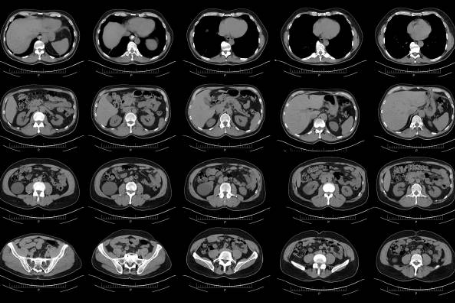
Acute prostate inflammation doesn’t sneak up on you – it makes itself known with a range of distressing symptoms that demand attention. Here’s what to look out for:
-
Pain: The Telltale Sign
- Where does it hurt? You might feel sharp, stabbing pain, or a dull ache in your groin, lower back, genitals, or the area between your genitals and anus (the perineum). This pain can be constant or worsen when you urinate or have a bowel movement.
-
Urinary Problems: Disruption and Discomfort
- Burning or Stinging: Urination becomes incredibly uncomfortable, with a burning sensation or stinging pain.
- Trouble Starting or Stopping: A frustrating sense of hesitancy like you have trouble getting the flow started. Or, once the flow starts, you have difficulty stopping.
- Frequent Urges: The need to go seems constant, even if you just went. Nighttime becomes a nightmare of repeated bathroom trips.
- Incomplete Emptying: That nagging feeling like your bladder isn’t fully empty, even after you urinate.
-
Fever and Chills: Your Body’s Fight
- Your body is battling the infection, signaled by a high temperature and uncontrollable chills.
-
Painful Ejaculation: Intimacy Disrupted The process of ejaculation can become exceptionally painful, adding another layer to the discomfort.
-
General Malaise: Feeling Under the Weather
- Fatigue, muscle aches, and an overall sense of being unwell are common with acute prostate inflammation.
Important Note: If you’re experiencing any of these symptoms, don’t hesitate to see a doctor. Early diagnosis and treatment are crucial for managing acute prostate inflammation and preventing serious complications.
How is It Diagnosed?
Don’t delay seeking medical help if you suspect acute prostate inflammation. Early diagnosis and treatment are crucial. Here’s how your doctor will approach a diagnosis:
1. Detailed Medical History
Get ready to answer questions about:
- Severity and Duration of Symptoms: When did it start? How bad is the pain?
- Urinary Changes: Difficulty urinating, frequency, burning sensations, blood in urine.
- Sexual Activity: Any recent unprotected sex or sexually transmitted infections (STIs).
- Medical Procedures: Have you had any urinary catheters, prostate biopsies, or other invasive procedures recently?
2. Thorough Physical Exam
- Digital Rectal Exam (DRE): While not everyone’s favorite, this exam allows your doctor to feel your prostate gland through the wall of your rectum. It helps detect swelling, tenderness, or firmness, which are signs of inflammation.
- Abdominal and Genital Examination: To check for tenderness and other potential related issues.
3. Urine Tests
- Urinalysis: Detects signs of infection, like white blood cells (your body’s immune fighters) or bacteria, in your urine.
- Urine Culture: This identifies the exact bacteria causing the infection, helping your doctor target treatment.
4. Additional Tests (If Needed)
- Blood Tests: To check for inflammation markers and rule out other conditions.
- Prostate-Specific Antigen (PSA) Test: This can be elevated in prostatitis, but also in other prostate conditions.
- Imaging Studies: Ultrasound or MRI scans might be helpful in rare cases to rule out complications like an abscess.
- Prostate Biopsy: This is less common but may be necessary if other tests are inconclusive or there’s concern for prostate cancer.
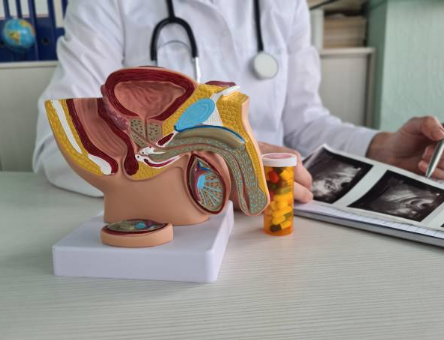
Treating the Prostate Infection: Clearing Out the Bacteria
The good news? Acute prostate inflammation usually responds very well to antibiotics. These medications are the cornerstone of treatment, working to directly fight the bacterial infection. Here’s what you need to know:
- Antibiotics – Your Best Weapon: Your doctor will prescribe a specific antibiotic based on the likely type of bacteria causing your infection. Common choices include fluoroquinolones like ciprofloxacin or levofloxacin.
- Treatment Duration: You’ll typically need to take antibiotics for at least two weeks, and potentially longer in some cases. It’s essential to complete the entire course of antibiotics, even if you start feeling better, to prevent the infection from returning.
- When Hospitalization May Be Necessary: In severe cases, you might need to be hospitalized to receive intravenous (IV) antibiotics for a short period.
Important Note: If you have a history of antibiotic resistance or recurrent prostate infections, your doctor might consider additional testing, such as a culture of your urine or prostate fluid, to determine the most effective antibiotic for your specific infection. These cultures help personalize your care.
Managing Symptoms: Beyond Antibiotics
While antibiotics are the primary line of defense for conquering acute prostate inflammation, managing the discomfort that comes with this condition is also crucial. Here are some strategies to find relief:
-
Over-the-Counter Relief for Pain and Fever: Ibuprofen (like Advil or Motrin) and acetaminophen (Tylenol) are readily available pain relievers that can tackle both the discomfort of prostate inflammation and the accompanying fever. Make sure to follow dosage directions carefully.
-
Addressing Bowel Discomfort: Straining during bowel movements can intensify prostate pain. Stool softeners help ease constipation and minimize aggravation to the inflamed gland.
-
Soothing Warmth: Warm baths or sitz baths (sitting in a shallow basin of warm water) offer comforting relief to the pelvic area. The warmth increases blood flow and can help reduce muscle spasms and inflammation.
-
Staying Hydrated: Drinking plenty of fluids throughout the day helps flush bacteria from the urinary tract, promoting overall healing. It also has the added benefit of reducing constipation.
-
Alternative Comfort Measures: Some men find additional relief with techniques like:
- Prostate massage: A qualified healthcare provider can perform this, but only after the acute inflammation subsides.
- Acupuncture: May help manage pain and inflammation.
Important Note: Always consult with your doctor before starting any new medications, supplements, or therapies. It’s a good idea to check in even with over-the-counter medications, as they might interact with other treatment you’re receiving.
Can It Be Serious? The Dangers of Untreated Infection
Yes, untreated acute prostate inflammation can escalate and lead to severe complications. Ignoring this condition puts you at risk for:
-
Sepsis: When Your Body’s Defenses Overreact This occurs when the infection triggers an extreme immune response, sending your body into overdrive. Sepsis is a life-threatening medical emergency characterized by high fever, rapid breathing, confusion, and dangerously low blood pressure. It requires immediate medical intervention.
-
Prostate Abscess: A Painful Internal Pocket of Infection A prostate abscess develops when the infection creates a pus-filled cavity within the gland itself. This can cause intense pain, fever, and difficulty urinating. Drainage procedures and antibiotics are often needed.
-
Chronic Bacterial Prostatitis: The Infection That Won’t Let Go Failure to fully clear the initial infection can sometimes lead to chronic bacterial prostatitis. This involves recurring flare-ups of prostate pain, urinary problems, and overall discomfort. Treatment can be more complex and may require longer courses of antibiotics.
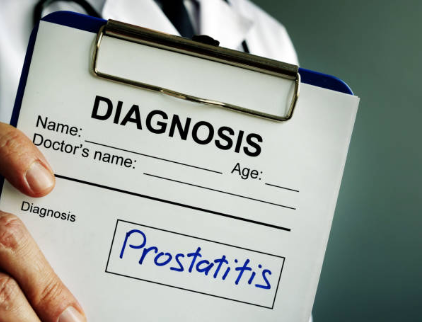
Why Prompt Prostate Infection Treatment is Critical
The sooner you seek medical attention for acute prostate inflammation, the better your chances of avoiding these serious complications. Early diagnosis and starting antibiotics promptly can:
- Stop the Infection in Its Tracks: Prevents the spread of infection and reduces the risk of sepsis.
- Minimize Prostate Damage: Prevents a prolonged infection, reducing the chances of abscess formation.
- Prevent Recurrence: A full course of antibiotics helps ensure the infection is completely eradicated, decreasing the likelihood of developing chronic prostatitis.
Protecting Yourself: Strategies to Minimize Your Risk
While there’s no guaranteed way to prevent acute prostate inflammation, proactive steps can significantly reduce your chances of experiencing this uncomfortable condition:
-
Safe Sexual Practices: Using condoms consistently is essential for protecting yourself from sexually transmitted infections (STIs). Some STIs can increase your risk of prostate problems.
-
Stay Hydrated: Drinking plenty of fluids, especially water, helps flush bacteria out of your urinary system. This reduces the chance of infections taking hold in your bladder and potentially spreading to your prostate.
-
Prioritize Gut Health: A healthy gut microbiome is crucial for a strong immune system. Focus on a diet rich in fiber, fruits, vegetables, and fermented foods to nurture beneficial gut bacteria.
-
Get Regular Checkups: Routine checkups with your doctor, especially as you get older, can help identify any early signs of prostate issues or potential risk factors.
-
Manage Stress: Chronic stress can weaken your immune system, making you more susceptible to infections. Find healthy stress-management techniques like exercise, meditation, or spending time in nature.
Additional Tips for Prostate Health: Beyond Acute Inflammation
While the primary focus is on addressing acute prostate inflammation, taking care of your prostate goes a long way in promoting overall health and potentially reducing the risk for future problems. Here are some more helpful tips:
-
Avoid Prolonged Sitting: Excessive sitting puts pressure on your prostate gland. Get up from your desk or chair regularly to stretch and move around. Aim for a short walk every 30-60 minutes.
-
Watch Out for Spicy Foods and Alcohol: Some men find that spicy foods and alcohol can irritate the prostate and worsen symptoms. If you notice a connection, try moderating your intake of these.
-
Consider Supplements: While the scientific jury is still out on their definitive benefits, certain supplements have been suggested to support prostate health. These include:
- Saw Palmetto: A plant-based remedy traditionally used for prostate issues.
- Zinc: This mineral is important for prostate function.
- Lycopene: A natural antioxidant found in tomatoes that might have prostate-protective effects.
Important Note: These strategies are preventative, not cures. If you suspect you have acute prostate inflammation, immediate medical attention is critical.
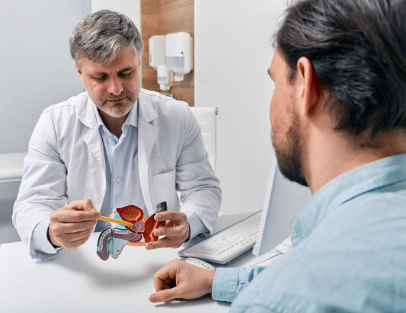
FAQs About Acute Prostate Inflammation
FAQ-1: What are the most common symptoms of acute prostate inflammation?
ANSWER: The most common symptoms include pain in the groin, lower back, or perineum, difficulty urinating, frequent urination, painful urination, fever, chills, and painful ejaculation.
FAQ-2: How do I know if I have acute prostate inflammation and not another condition?
ANSWER: It’s important to see a doctor for an accurate diagnosis. They will ask about your symptoms, perform a physical exam (including a digital rectal exam), and order tests like a urine analysis to determine the cause of your discomfort.
FAQ-3: Is acute prostate inflammation treated with antibiotics?
ANSWER: Yes, antibiotics are the primary treatment for acute bacterial prostatitis. Your doctor will choose an appropriate antibiotic and determine the length of treatment.
FAQ-4: Besides antibiotics, how can I manage the symptoms of acute prostate inflammation?
ANSWER: While antibiotics fight the infection, you can take steps to manage the pain and discomfort. This can include over-the-counter pain relievers, stool softeners, warm baths, and reducing activities that put pressure on the prostate (like prolonged sitting).
FAQ-5: Can I prevent acute prostate inflammation?
ANSWER: While there’s no guaranteed way to prevent it, certain lifestyle choices can reduce your risk. This includes practicing safe sex, staying hydrated, maintaining good gut health, and avoiding prolonged sitting.
SEE ALSO: Latest Prostate Supplements >>
NOTE :
The information provided in this article and the rest of this website is intended for general knowledge and informational purposes only, and does not constitute medical advice. It is essential to consult a qualified healthcare professional for the diagnosis and treatment of any health condition. Never disregard professional medical advice or delay in seeking it because of something you have read in this article.

